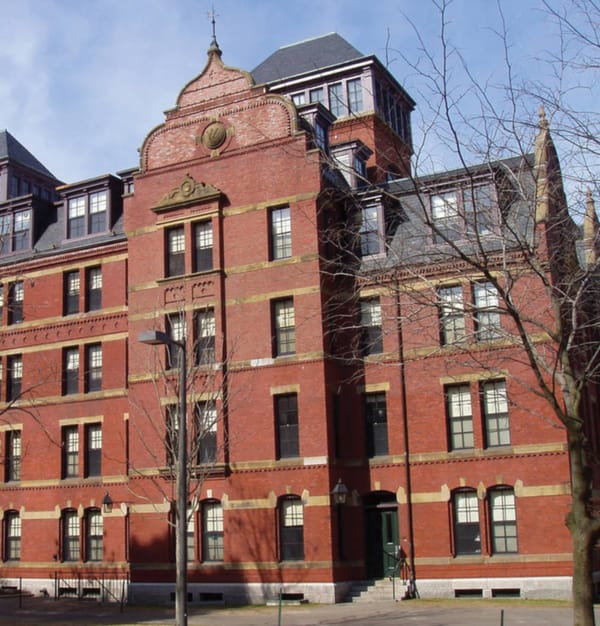Unseen Imperial and depression
More anonymous accounts of students and their experiences with depression

There are some aspects of our lives that we just don’t talk about. This makes it easy to think that we’re alone in our experiences, when in fact, we’re probably not. Last term the Union asked the student body to submit anonymous accounts of their experiences of mental health. Once again, the sincerest of thanks to everyone who took part:
–
In the second year of my degree at the College I made an appointment to see my GP, not because I had a chest infection or another physical complaint but because of something else. In the 6 months preceding this appointment, my affect or mood had significantly altered, a feeling of sadness that had initially waxed and waned was replaced by a persistent flatness of mood that progressively became more pronounced, culminating in crying myself to sleep on most nights.
Upon entering my GPs office, my response to her enquiring as to how she could help was to burst into tears. She asked what was making me feel like this and I couldn’t tell her. She then asked whether I had been feeling suicidal and I replied that I had. She responded with a tremendous compassion that made me feel safe and calm, reassuring me that everything would be alright. To this day, her gentle and caring response provides great solace. I then filled out a questionnaire and was subsequently diagnosed with depression, prescribed a month’s course of fluoxetine (Prozac) and referred to the Priory clinic for psychotherapy. My GP implored that I inform my parents of our appointment and its outcome.
As I exited the clinic I felt a powerful sense of relief for I had finally begun to confront this thing that was slowly tearing me apart. For any person struggling with suicidal thoughts, a consistent blunted mood and/or a prolonged disinterest in once cherished pastimes - do not remain pensive and isolated with these ruminations, for they will only get worse and more disabling for you, the moment you seek support is the moment where things start to get better. Seeking support for depression is an immensely hard thing to face up to but a decision that eventually may save your life.
Whilst I have described my diagnosis in a positive light, by no means was this the catalyst for a speedy recovery but it did mark the start of improvements even if there were and still are many obstacles. Unfortunately my parents did not respond in the same way as my kind GP and I found antidepressants really didn’t help that much; they left me feeling nauseous in the morning, gave me an infrequent resting tremor, exacerbated my weight loss and ensured I had some rather surreal albeit slightly disturbing dreams. Moreover, the Priory refused to see me and instead referred to local services for supportive counselling (which I later declined). The only thing that really helped me was being open with the people that I was closest to and also mediating with persons who had inadvertently contributed to my feelings of sadness. After letting things fester inside you for so long, getting such suppressed thoughts of your chest is incredibly therapeutic.
I did reluctantly inform the college of my predicament and they responded with a great deal of respect and support. You will not be judged for being depressed, there is a dedicated and caring team who will support you in any event. Don’t be afraid to let personal tutors etc know what is going on, depression is a disabling affliction that negatively impacts on your sense of worth, your relationships and your studies and the College is acutely aware of this and will do all it can to ensure you return to good health whilst staying on track with your course.
Since being diagnosed with depression, I have experienced two further periods of intense sadness, similar to when I was first sought help. During these periods, a feeling of helplessness and weakness yet again dominated my thoughts and left me feeling distraught. Again, in these moments of desperation, speaking to loved ones proved to be the most effective in alleviating such feelings. It has been nearly seven months since I last felt depressed as described above, I increasingly feel extremely about positive about my life, my relationships and the future. I am now more open about being depressed with close friends and am more aware of my triggers to feeling flat and feel confident I have can mitigate such things to remain contented and enthused.
Being depressed is a dark and lonely place to be but things do get better, it will take time and it may not be a smooth passage back to feeling like you once did but once you to start to be open with yourself and then with friends and family, you are moving in the right direction. Importantly, enduring such a consuming and debilitating illness will empower you with a great sense of empathy for the many others experiencing what you have been through, enabling you to provide a kind word and a tissue shoulder for someone who will greatly appreciate the support you will provide.
I have deliberately refrained from describing depression in purely clinical terms or elaborating on the actual triggers for what made me depressed, I wanted to draw attention to the importance of seeking support from the professionals and loved ones, and that my initiating these steps you demonstrate bravery, intelligence and a strong desire to love life once again.
–
Depression wasn’t something that happened to me at university. It had always been there really but at a manageable level and I, as everyone leaving for university, thought that I would escape the problems of the past, move on and have a fabulous time.
And for a while it worked. I met new people, I didn’t do too badly, I had enough stuff to keep me busy. But as first year wore on, my energy ebbed and I felt myself getting very lonely and increasingly solitary.
I looked for help at the beginning of the Spring term in the form of the Imperial counselling service and found myself pouring my heart out for an hour to someone willing to listen. But outside that one hour a week I felt totally lost.
It is not that none of my friends tried to help. Most of the ones that noticed the difference in me put it down to exam stress and getting dumped by my boyfriend. But what they didn’t know was it was the way I was feeling that had led both of those things coming to a head. How could I pass my exams when I couldn’t keep it together for more than 5 minutes?
I remember breaking down after coming out of the shower, sat in the corridor sobbing wearing a towel while a concerned friend wondered what to do. And being chaperoned to and from a café by my friends on their way to uni every day throughout study leave.
At that point I was having very dark thoughts which led me to stand with my back to the wall of the platform waiting for the tube every time I used it. I was scared of what some part of me might want to do. I never self-harmed as such. I just remember digging my nails into my arms whenever anything got too much, without thinking, even while just having a conversation. The small amount of pain reminded me that I was still there.
My department were very supportive. I saw a doctor, ignoring his insistence that medication was necessary. I finally told my mum what was happening to me. I got through my exams, spent the summer recuperating and returned in good spirits for second year, only to find the same pattern of decline throughout the year. This time, however, I had some support from friends and family.
I am not better, but I have found ways of coping. Loud music helps, as does taking time away from work to do things I want to do. I am hoping my final year will pass with fewer hitches as I really want to enjoy my time at Imperial and remember it more positively.
I have met, in my time at university, many people who believe that mental illness is a weakness and it is created solely by yourself. The only way I have been able to talk about my experiences, even with my friends, is through a series of incredibly inappropriate jokes about me being ‘crazy’ which make everyone uncomfortable. But isn’t it sad that is the only way I can express how I am feeling? So I would entreat you to listen to what your friends are saying, you might not understand but, at least for me, trying is good enough. A inappropriate joke is in fact a cry for help.
We’d really like to run more articles like this. If you’d like to share your experiences of anything people don’t openly discuss, such as faith, sexuality, body image, mental health, disability or discrimination of any kind, please email icu-disabilities@imperial.ac.uk. You can create an anonymous email address to send it from and any details which could be used to identify you will be edited out.




